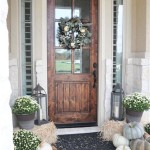Essential Aspects of Homemade Farm Dining Tables
Incorporating unique pieces into your home décor can add character and warmth to your space, and a handmade farm dining table is an excellent way to do this. Whether you're a seasoned woodworker or just starting, creating your own farm table allows you to customize it to match your specific style and needs.
However, to ensure a successful finished product, it's crucial to consider several essential aspects during the planning and construction phases. This article will guide you through some of the most important elements to keep in mind, helping you create a sturdy and aesthetically pleasing centerpiece for your dining room.
Let's dive into the key elements of a well-crafted homemade farm dining table!
### 1. Tabletop Material and ThicknessThe tabletop is the most prominent element of your dining table, so choosing the right material is crucial. Solid wood is a classic option, offering durability, longevity, and a timeless aesthetic. Popular wood species include oak, maple, and walnut, each with unique grain patterns and finishes.
The thickness of the tabletop also affects its overall stability and appearance. Thicker tops (1.5-2 inches) provide a more substantial and durable feel, while thinner tops (1-1.25 inches) offer a sleeker, contemporary look.
### 2. Base Design and StrengthThe base of your farm table provides both support and visual interest. Common base designs include trestle, pedestal, and trestle-style legs. Each style offers varying levels of strength and aesthetic appeal.
When choosing a base design, consider the weight of your tabletop and the desired level of stability. Trestle and pedestal bases provide ample support, while trestle-style legs add a rustic charm.
### 3. Joint Type and AssemblyThe joints you use to connect the tabletop to the base are crucial for ensuring a sturdy and durable table. Common joint types include mortise and tenon, dowel joints, and biscuit joints.
Mortise and tenon joints are considered the strongest, providing excellent stability and durability. Dowel and biscuit joints are also effective, offering good strength while being relatively easy to assemble.
### 4. Finishing and ProtectionOnce your table is assembled, applying a protective finish is essential to enhance its appearance and longevity. Polyurethane, varnish, or lacquer can seal the wood, protecting it from moisture, stains, and scratches.
The type of finish you choose will depend on your desired sheen and resistance level. For a more natural look, matte or satin finishes are suitable, while high-gloss finishes provide a more formal appearance.
### 5. Customization OptionsThe beauty of a homemade farm table lies in its customizability. You can tailor it to match your specific tastes and décor by incorporating various design elements.
Consider adding decorative trim, carving details, or even painting the table for a unique touch. With a little imagination, you can create a truly unique and personalized piece that reflects your style.

Diy Farmhouse Table Free Plans Rogue Engineer

Diy Farmhouse Style Dining Table Domestically Creative
:max_bytes(150000):strip_icc()/decor-and-the-dog-farmhouse-table-56af6cc05f9b58b7d018acf1.jpg?strip=all)
14 Free Diy Woodworking Plans For A Farmhouse Table

Farmhouse Table Updated Pocket Hole Plans Ana White

Diy Farmhouse Dining Table Free Plans And Tutorial

Diy Farmhouse Table Gorgeous And Big Leap Of Faith Crafting

Diy Farmhouse Table And Bench Honeybear Lane

How To Build A Diy Farmhouse Dining Table Thediyplan

Diy Farmhouse Kitchen Table Projects For Beginners

40 Diy Farmhouse Table Plans Ideas For Your Dining Room Free








